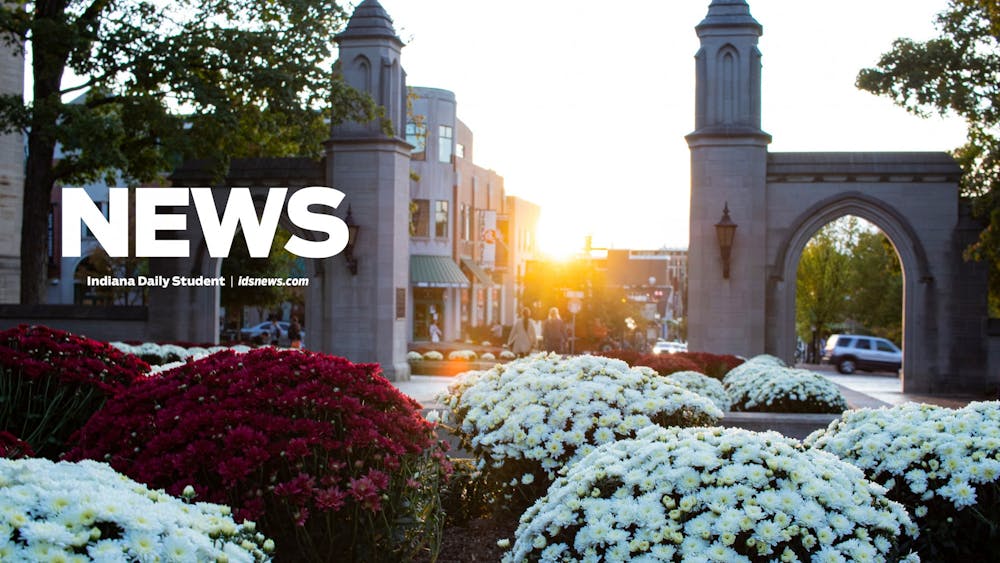Sarah Bugden, a white junior, said she knew nothing about Kwanzaa and the African history surrounding it before she entered the Ruth N. Halls Theater Thursday night. Bugden and her friend Sherie Cooley, also a white junior, attended the pre-Kwanzaa festivities hoping to broaden their horizons and expand their knowledge of other cultures.\n"I was actually empowered by it," said Cooley. "People don't think about how much in common all these different cultures and people have."\nBugden and Cooley were among hundreds of IU students who participated in Thursday night's \npre-Kwanzaa celebration at the Neal-Marshall Black Culture Center, joining more than 20 million people throughout the world who are expected to celebrate the pan-African holiday from Dec. 26 this year to Jan. 1 next year.\n"It was really inspiring and eye opening to think more about myself and my culture, and learn about who I am and where I came from," said sophomore Sarah Leavell.\nKwanzaa founder, Maulana Karenga, was the featured speaker and the highlight of the evening. While warming the crowd with his humor, Karenga explained the origin of Kwanzaa and described past and present struggles of African peoples.\n"The passion that he had really inspired me to take what he said to heart," Bugden said. "Kwanzaa isn't just a holiday but a lifestyle."\nOther students also felt inspired by Karenga's message about the spirit of Kwanzaa. Senior Dorian Clark, director of Bridging the Gap for Union Board, was inspired to be more proud of himself as black student. Clark felt most compelled by Karenga's discussion of the racial inequality in the educational curriculum.\n"You won't learn about African culture unless you seek it out," he said. "There are 1,300 black students out of 38,000 here, and we know how it is."\nOther students at the pre-Kwanzaa celebration entertained and expressed various aspects of African culture through song, dance and dramatic performances.\n"This is just another way to inform people," said junior Sherhara Williams, an actress in the Black Curtain group that performs social and racial pieces.\nIn addition to the traditional Kwanzaa ceremonies, including the lighting of the seven principle candles and the unifying chant of Harambee, Beverly Calender-Anderson presented two proclamations on behalf of the city of Bloomington.\nDec. 26 to Jan. 1 was proclaimed Kwanzaa Week by Bloomington Mayor Mark Kruzan to encourage all citizens to reflect on the seven principles and to apply them in their lives.\nCalender-Anderson also presented a proclamation written by Kruzan declaring Dec. 1 Rosa Parks Day in Bloomington. Thursday marked the 50th anniversary of Parks' refusal to give her seat to a white male on a Montgomery, Ala., bus. \nKarenga opened his speech giving libations to inspirational black people who have paved the way for racial progress. He founded Kwanzaa in 1966 as a way to reaffirm the roots of African culture, to give time to African people to come together and bond and to introduce and emphasize the importance of community and values.\nKwanzaa's seven principles, the Nguzo Saba, serve as the foundation for the holiday, including the featured principles of unity and faith.\n"Without unity, you can't begin the project," Karenga explained. "Without faith, you can't finish the project."\nDuring his lecture, Karenga stressed that Kwanzaa is not a celebration about of colors, but a celebration of good in the world. The diverse crowd of students, professors and community members proved this point.\nWilliams, who has celebrated Kwanzaa in the past with her family, said she felt Karenga's message was proactive and uplifting.\n"He is speaking to the black community, but I think all people of all colors can benefit from his message of unity," she said.
A holiday for ALL
Once perceived as a closed celebration, Kwanzaa at IU is open for everyone
Get stories like this in your inbox
Subscribe





